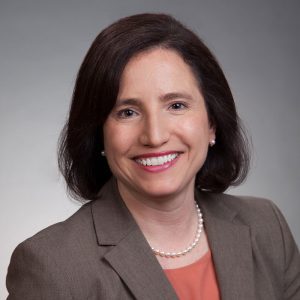 by Kathleen M. Sablone, JD, AEP®, Co-Chief Planning Officer
by Kathleen M. Sablone, JD, AEP®, Co-Chief Planning Officer
RMDS Delayed Further
The original SECURE Act raised the beginning age for required minimum distributions (“RMDs”) from 70 ½ to 72. SECURE 2.0 increases the age to 73 in 2023 and 75 in 2033. This means that anyone who turns 72 in 2023 will not need to start RMDs until 2024. Please note that this does not apply to individuals who have already reached their RMD age.
Increased Catch-Up Contributions
Starting in 2023, participants who are 50 or older can contribute an additional $7,500 per year to their 401(k) or 403(b). The new law increases the catch-up amount to $10,000 for anyone aged 60-63. For IRAs, the current $1,000 catch-up limit will be indexed for inflation beginning in 2024.
529 Plan Rollover
Beginning in 2024, SECURE 2.0 will permit a tax-free rollover of a 529 plan to a Roth IRA in the beneficiary’s name. The rollover amount is limited to $35,000 over the beneficiary’s lifetime and the 529 must have been open for at least 15 years. Furthermore, the beneficiary must comply with annual Roth contribution limits.
Increased Qualified Charitable Distribution Limit
Anyone over 70 ½ can distribute up to $100,000 per year to charity from an IRA through a Qualified Charitable Distribution (“QCD”). This amount can satisfy an RMD and is not included in taxable income. Beginning in 2024, the $100,000 limit will be indexed for inflation. These gifts can only be made to qualified charities but SECURE 2.0 allows a one-time $50,000 gift to a charitable trust or gift annuity. Gifts to donor-advised funds and private foundations are still excluded.
Automatic 401(k) Enrollment
Employers will be required to automatically enroll employees in their 401(k) plan at a rate of 3-10% of their salary, though employees will have the option to opt-out. This provision only applies to new plans for employers with over 10 workers that have been in business for at least 3 years.
Boston Financial Management’s Wealth Advisors are well-versed in these changes and the impact they may have on client portfolios. If you have any questions, please contact your Advisor or our Estate and Financial Planning Group:
Important: This alert does not contain any legal or tax advice. You should always consult with your attorney, accountant or other professional advisors before changing or implementing any tax, investment or estate planning strategy.
IRS Circular 230 Disclosure: Pursuant to IRS Regulations, we inform you that any tax advice contained in this communication (including any attachments) is not intended or written to be used, and cannot be used, for the purpose of (i) avoiding tax related penalties or (ii) promoting, marketing or recommending to another party any transaction or matter addressed herein.
Professional Designation Minimum Requirements Disclosure:
AEP® – Accredited Estate Planner®. Minimum requirements for the AEP® designation include active practice for a minimum of five years within the following disciplines: accounting; insurance and financial planning; law; philanthropy; and trust services with at least one-third of the individual’s time devoted to estate planning. Additionally, one or more of the following professional credentials: JD, CPA, CLU®, CFP®, CPWA®, CFA, CAP®, CSPG, CTFA, MSFS and MST is required, along with three professional references and current membership in an affiliated local estate planning council.

